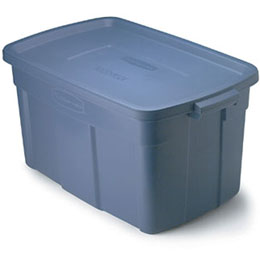For more information on specific symptoms and whether they need immediate vet care,
read here. Always consult with a vet about your bird’s condition, especially if it appears sick or injured. This post is intended to help you do immediate care before actual medical treatment is administered.
Short Term First Aid Instructions:
You need to provide several things in order to stabilize your bird before taking it to a vet. Most of these things can be covered by basic care and a hospital tank or cage:
 |
| Great hospital tank for smaller birds. |
Hospital Tank/Cage:This is a cage or flat bottomed tank that has no perches. The bird must save energy by sitting on the bottom, preferably on a soft towel
. Food and water should be immediately accessible to the bird from where they sit, they should have to make no extra effort to nourish themselves. Give favorite foods that are never turned down at this time- the point is to make sure calories are being consumed!
Warmth:
 |
| Great tank to adapt for a larger bird. |
Keep bird in warm environment (unless indicated otherwise in the chart above) of 85-90 F (29- 32 C). A heating pad or water bottle under or clipped to a corner the cage (with a perch or nesting area there in the corner), a reptile heater or lamp (75-100 watts, away from where bird can come into contact), or an incubator specifically for this purpose can be used. Be careful not to overheat. Monitor the bird every so often to ensure this. Too hot would be panting, holding wings out away from the body. Too cold would be feathers fluffed up for an extended period.
Food and Water:
Keep favorite foods and water close to sleeping area, so little effort is exerted on looking for food. Millet spray or nuts are usually treats for birds and eaten.
 |
| Also a great hospital tank, without the perch. |
Sleeping/Resting area:
Birds who are too weak to perch, have paralysis, or fractures should have perches removed from the cage & given a soft clean place to sleep (paper towels are insulation & can be easily cleaned up & replaced and make a good sleeping area) at the bottom of the cage.
Energy:
Small birds become debilitated faster than larger birds. A few drops of warm (not hot), strong coffee solution (That’s right! We said coffee! We KNOW it’s toxic in frequent doses, but it will not hurt your bird in this small, one-time amount) with a high concentration of sugar, administered with a syringe or eye dropper can provide a burst of energy in order to get the bird to a vet if they are on their last legs. Gatorade or Pedialyte can also be given at any point during this time for hydration.
Medications:
Do NOT give the bird over-the-counter medications from the pet shop, especially antibiotics. These are too weak to work & may skew vet lab results, delaying proper treatment.
Now through 12/11, enter code holidaze to get a free bag birdie bread when you order three!




